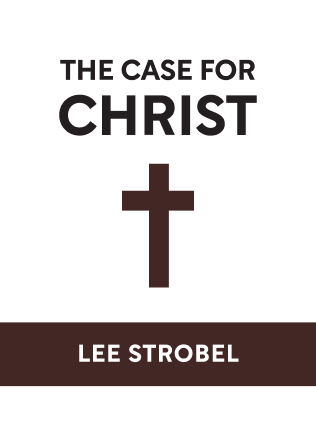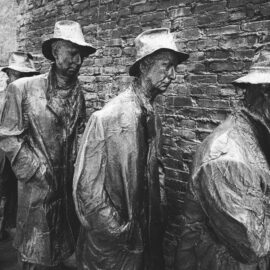

This article is an excerpt from the Shortform summary of "The Case for Christ" by Lee Strobel. Shortform has the world's best summaries of books you should be reading.
Like this article? Sign up for a free trial here .
What are mystery religions? What is the mystery religion definition? Did mystery religions influence the formation of Christianity?
Mystery religions are religions from the Greco-Roman empire that were not officially or publicly recognized. Some scholars, including the ones in the Jesus seminar, believed that written Christian texts are not based on any real event, but are instead a combination of mystery religions.
Keep reading to find out more about these religions and how they affected Christianity.
What Are Mystery Religions?
Just as certain skeptics believe accounts of Jesus to have been influenced by first-century myths, others believe Christianity itself to be a hodgepodge of already existing religious practices. For example, there were a number of “mystery religions” practiced in the ancient world that included narratives of death and resurrection as well as rituals of baptism and communion.
As with other arguments about external influence, there are too many logical flaws in this critique for it to be credible. For example, it’s often noted that the mystery religion definition features myths of gods dying and rising again. But these myths are tied to natural lifecycles, like crops dying in the fall and growing again in the spring, and take place sometime in the distant past. Jesus’s death and resurrection have no such metaphorical and fairytale content—they are narrated by near-eyewitnesses as fact.
What Does the Jesus Seminar Believe?
The Jesus Seminar holds that Jesus as a historical human being did indeed exist. This Jesus, however, was exclusively a “naturalistic” Jesus. That is, this Jesus might have had extraordinary qualities—of leadership, charisma, or piety—but he was not in any way supernatural; according to the Seminar, the accounts in the gospels of miracles like walking on water or rising from the dead are almost certainly legends created by Jesus’s followers to cope with his death and burnish his memory.
Advocates of a divide between a naturalistic Jesus and a mythological one often point to the historical context in which Jesus lived, a time when miracle workers were not uncommon and so-called “mystery religions” built around resurrections were in existence. When these facets of the ancient world are cited, there are two claims being made: (1) that Jesus’s supernatural qualities weren’t actually true to him, but rather imported from preexisting and obviously mythological sources; and (2) that if there were other similarly endowed figures around at the time as Jesus, Jesus isn’t uniquely deserving of worship.
The Jesus Seminar aims to develop a new Christianity, one free of fundamentalism and responsive to the situation of contemporary human beings. Scholars in the Jesus Seminar hold a variety of viewpoints on Jesus: Some see him as a religious zealot, others as a political revolutionary, still others as a proto-feminist or socialist.
The mystery religions definition seeks to put Christianity in this category by some scholars, though others disagree.

———End of Preview———
Like what you just read? Read the rest of the world's best summary of Lee Strobel's "The Case for Christ" at Shortform .
Here's what you'll find in our full The Case for Christ summary :
- How an atheist lawyer-journalist researched Christ and began believing
- The key arguments against the existence of Christ, and why they don't hold up
- How to make up your own mind about whether Christ existed






